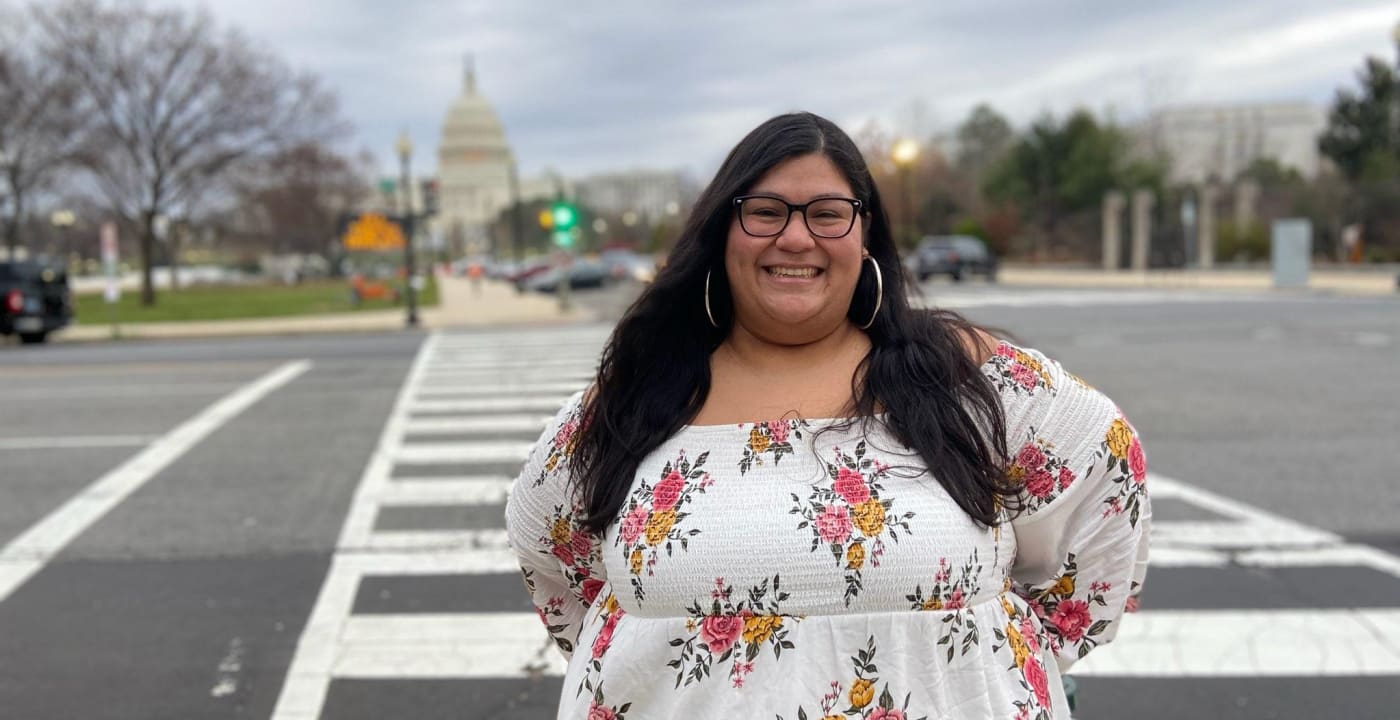Beyond weight loss: how one Y program reduces diabetes risk and supports healthy habits

Nothing in her routine blood work indicated that Olgy Diaz was at risk for Type 2 diabetes. And yet, with a family history of the disease, she guessed it was just a matter of time. So she talked to her primary care doctor, Irene Robertson, DO.
Dr. Robertson prescribed the YMCA.
Rather than encouraging Diaz to pursue just weight loss, Dr. Robertson referred Diaz to the YMCA Diabetes Prevention Program (DPP), specifically designed to help patients like Diaz avoid developing the disease.
“I was pretty excited about it,” Diaz recalls.
After a pandemic-induced delay, Diaz started the YMCA DPP program last September.
The DPP is an evidence-based program that came from a nationally funded Centers for Disease Control (CDC) study, which has been demonstrated to reduce risk for developing Type 2 diabetes by 58 percent. It’s just one facet of the Y’s partnership with MultiCare to promote health and wellness.
“We amplify each other’s services to improve patient health,” says Courtney Austin, director of care coordination for the YMCA of Pierce and Kitsap Counties, and the facilitator for Diaz’ group.
The DPP is even built into MultiCare’s electronic medical record system, enabling referring providers to keep track of patients’ progress.
“It’s a beautiful, seamless pathway for providers,” Austin says.
In addition to provider referrals to the program, people can also self-refer. To enroll, they must meet several criteria, including BMI of 25 or higher (23 for those for Asian populations) and other risk factors such as family history, blood values showing elevated glucose and low activity levels, along with a commitment to making a change. Financial assistance is available for those who need it to help cover the program costs. Y membership is not required to enroll.
“The Y is committed to providing access to all, regardless of their ability to pay” Austin says.
“It starts out with a lot of education around what different kinds of foods do to you metabolically or to your eating habits and how to form better eating habits,” Diaz says.
Rather than just looking at calories, participants learn about the importance of building awareness of their lifestyle habits, becoming detectives in their lives, to determine what food and physical activity habits are helping to improve their health and what habits could benefit from change.
A couple of weeks into the program, which includes a three-month Y membership, participants are encouraged to develop and track physical activity and set goals for food and exercise. Diaz says she tries to ensure that she gets 150 minutes of activity each week. Sometimes that means she gets in some movement each day or, if it’s a busy week at work, an extra-long walk on the weekend.
Diaz meets virtually, at first weekly then gradually less often, with a coach and a small group of other participants to talk through challenges and successes. The program gives participants a binder with worksheets, exercises and logs to track food and activity, as well as a FitBit wifi scale, if participants don’t already have one.
“When I saw the program came with a Fitbit scale I bought a Fitbit Versa so they could sync and I could track my movement better,” she says. “You do have to report your weight every week but it’s in the cloud.”
Diaz admits she wasn’t convinced the meetings would be helpful at first.
“I’m not a big group sharer, a big feelings sharer, so I thought I wouldn’t enjoy the activities. I thought I would hate it!” she says. “As it turns out, it is quite helpful and quite useful in terms of accountability. I know we’re going to talk about how I was a sloth or how I wasn’t.”
“It’s a really small cohort so it inspires and requires a large amount of honesty,” Diaz continues. “There’s a cool social aspect to it, as we all sort of progress through this together. You can talk about whether you make your goals without judgment.”
The group also helps encourage each other through rough spots.
“It’s interesting to hear how everyone’s problems are different but we can mutually work and figure out how to problem-solve together,” Diaz says.
While the virtual meetings began because of the pandemic, Austin predicts they won’t entirely go away even when groups can meet in person.
“It takes out the transportation issue for people having to be at the Y at a certain time,” she says. It also enables Austin to build a geographically diverse cohort so she can launch new groups more quickly.
“I try to start a cohort as soon as I have eight people committed,” she says.
And though weight loss wasn’t her top goal, Diaz says she’s lost 30 pounds, “truly through nothing but writing down what I eat.”
And even when work got busy and she stopped tracking her food for two weeks “I was using the same eating habits,” she says. “It just engrains good habits. I don’t feel like I lost any of the gains that I made.”
Diaz says anyone with a family history of Type 2 diabetes or who has been diagnosed with prediabetes should ask their doctor about the YMCA Diabetes Prevention Program.
“It’s coming at it from a diabetes prevention standpoint, instead of a weight-loss standpoint,” she says. “But you probably are going to lose weight in the program because it’s part of the prevention of diabetes.”
And, while the weight loss is a potential benefit, for Diaz, it is not the most important thing.
“I feel better,” she says. “I can be active more. I went on a trip to Europe at the end of the year and I was able to move around more and see more things.”
To learn more about the Y’s Diabetes Prevention Program, visit their website.




